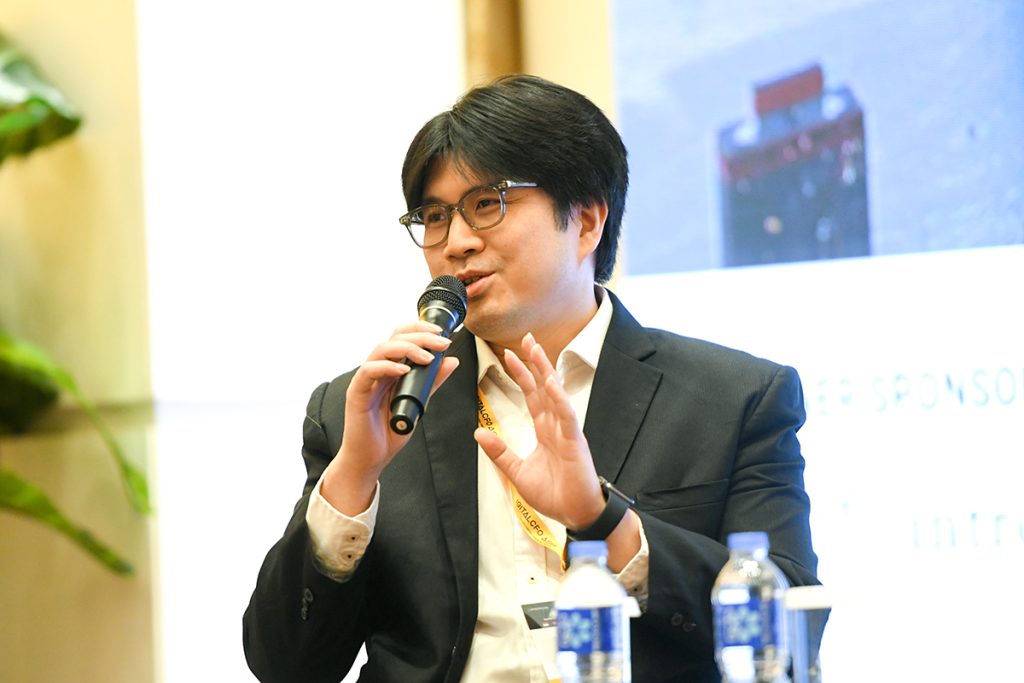

TAKEAWAYS
According to the National Population and Talent Division’s 2023 Population in Brief, 205,200 Singaporeans reside overseas, where a majority are pursing overseas employment. The Straits Times also reported that a recent survey found that 93% of Singapore respondents prefer to work in firms with overseas operations rather than those with only a domestic focus – higher than the global average of 79%. While this means that Singaporeans have a preference to pursue careers in multinationals, the fact is that the Singaporean workforce is still predominantly based in Singapore.
Exposure to international markets
A recent Bloomberg article reported that there are 4,200 Asia headquarters in Singapore, and Singapore has the highest number of completed regional headquarters in the past 10 years in Asia Pacific. However, for opportunities beyond Asia regional offices, one would need to venture beyond Singapore to gain exposure.
Venturing abroad allows you to have direct exposure to global businesses and international markets, providing valuable insights and experience that will enable you to add value to your roles and even elevate your career. Professional networks can be meaningfully enhanced with increased access to colleagues from diverse markets, offices and backgrounds. Such relationships and exposure can elevate your potential for leadership roles in global firms. This is frequently highlighted by Singapore’s business and government leaders including Manpower Minister Dr Tan See Leng, who commented that more Singaporeans need overseas exposure to take on leadership roles in global firms.
In my current role with a Head Office located in Hong Kong, I am able to form meaningful networks with colleagues not only in the Head Office, but also across the local markets. The exposure I have gained is at a macro and global level, allowing me to see a bigger picture beyond the company’s domestic markets, and how strategy is formed at the top. But it also presents me with valuable insights from local markets through the collaborations with colleagues in local markets and more importantly, a chance to lead and direct. Being in the finance field in the insurance industry, my previous role in Hong Kong was similarly with a Head Office, which allowed me to oversee the performance management of the company’s entire Asia market. I was exposed to colleagues from the Asia markets and this allowed me to gain valuable insights and knowledge of various insurance markets in Asia through interactions with them and from the analysis of market information and data.
Venturing overseas does not only mean working in headquarters, as it could also mean working in local overseas markets. This gives you valuable exposure to local industry knowledge and practices, which will prove beneficial as you advance in your seniority and work across different roles. For those who return to Singapore, value-adding aspects of work practices and cultures can be exploited, for application in Singapore as well. Some of these markets are bigger, more advanced and more mature than that of Singapore. For example, Hong Kong’s financial services industry is bigger than Singapore’s. The value of companies listed on the stock exchange is about US$5 trillion, more than 12 times Singapore’s US$400 billion. Hong Kong is home to almost half the hedge fund managers in Asia, given its presence of high-net-worth clients in Asia. For a finance professional, venturing to Hong Kong could translate to wider industry exposure, specialised training and career opportunities that can elevate your career potential.


Learning from different cultures and for personal development
There are benefits to experiencing different cultures and ways of working. Though the diversity in cultures may vary from workplace to workplace, working overseas will expose you to a variety of people and work cultures, languages and traditions.
Being immersed in a culturally diverse workplace can heighten your cultural sensitivity and awareness; gain local cultural insights and on-the-ground market knowledge; encourage greater creativity and innovation, and enhance productivity and performance. These, in turn, support personal development spanning improved communication skills, greater confidence and improved networking and technical skills.
While Singapore may already be culturally diverse, the Singaporean culture is still dominant. Working overseas meant that I was in the minority in terms of race and country background. It was a whole new experience for me to have to adapt to the different cultures in the countries I had worked in, and to be aware of how people operate or work in different cultures. I had to be culturally sensitive and aware, and in doing so, I have built better relationships as people were receptive to me when they see that I appreciate their culture. More pertinently, exposure to market diversity could be limited in Singapore, especially in terms of on-the-ground experience of local markets. Working together with colleagues from various local markets greatly exposed me to how businesses and operations are conducted across various geographies.

Better marketability
Working overseas enhances your resume and marketability, both in the domestic sense and internationally. Whether you are showcasing your CV in Singapore or abroad, working in different countries shows future employers that you have gained valuable insights and exposure across different geographies and markets, which is increasingly valued especially by companies with international footprints. It also proves to them that you are an adaptable and flexible person who is willing to embrace change.
From my experience, both potential employers and recruiters alike have positive views with regard to my overseas working experience, as it signalled that there are perspectives and insights that I can bring to the table to add value. Additionally, it shows that I can adapt to different social and work environments, which extends to an ability to adapt to challenges. Having overseas working experience, in my view, will only add another layer of positivity to your resume.
Salary outcomes are not always higher beyond Singapore
Despite the benefits above, whether or not working overseas allows you to earn a higher salary depends on various factors. In countries where the cost of living is lower, it may be challenging to have Singapore-level salaries, while the converse is also usually true. With inflationary impacts, companies may be limiting their expatriate perks and allowances. Some countries may have higher tax rates than Singapore’s, and there is also the issue of rental cost, which may not be covered by the company. Furthermore, salaries are also influenced by labour economics, which differ from country to country.
Glass ceilings and subtle non-inclusion
As much as the diversity and inclusion paradigm is being advanced today, practically speaking, sometimes, certain things can only be done by locals. This means that there could be times when your contributions are sidelined for practical reasons. Additionally, being in a minority could prove to be a disadvantage as people tend to interact or build relationships more easily with those who have similar backgrounds as them. This could result in preferential treatment due to relationship asymmetries. As much as companies may strive to be diverse from top-down policies, it is the people that determine the culture on the ground.
Life, in reality, is not perfect. Depending on the kinds of opportunities available and various circumstances, the benefits above will not always materialise or be meaningfully achieved when one works overseas. However, the potential can only be yours if you are open to giving it a shot. One has to assess the options available and have an open mind. At times, it takes a leap of faith when it is difficult to assess the pros and cons of opportunities.
Philip Shin is Chief Financial Officer, Prudence Foundation, Prudential plc.